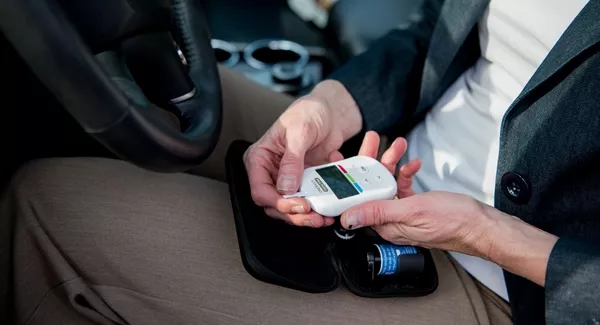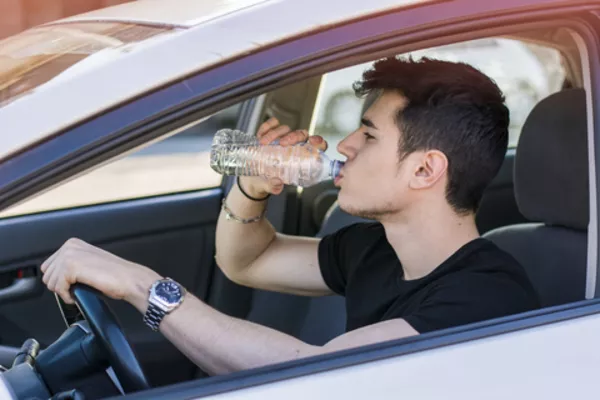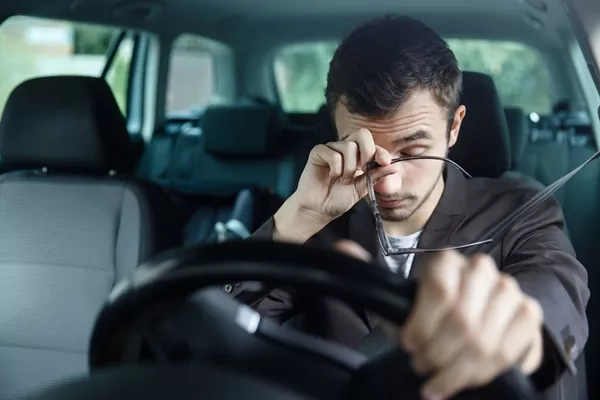Driving may be fun for some, but it’s different for those drivers who drive long hours every day. Drivers who have to deal with heavy traffic, pollution and the changing weather every day.
In addition, dealing with customers, conflicts, shifting schedules and lesser family time contribute to the stress and fatigue that drivers (especially drivers of public transport). All of these are factors that affect the health of every motorist.
Night driving also increases the risk of accidents according to studies. These studies stated that a person is 3 times more likely to get involved in an accident during the night compared to daylight driving.
Aside from the risk of accidents, there are also health issues that almost all drivers experience. These health conditions can affect their driving ability. Philkotse.com will enumerate the different health issues experienced by most drivers.
1. Hypertension or high blood pressure
Like we have mentioned in the article about the possibility of health issues happen to PUVs drivers, daily drivers also face some health problems as well.
Like your heartbeat, the force of blood against your arteries’ walls is measured, this is called blood pressure. High blood pressure can result in a higher risk of chronic diseases and conditions such as stroke, kidney disease, heart disease, eye damage, etc. In addition, high blood pressure measuring at or above 180 over 100 will hinder drivers from getting a professional driver’s license.
However, high blood pressure can be avoided or lowered by exercising, reducing intake of sodium, managing stress and smoking less.

One of the most common health problems that drivers might face is high blood pressure
2. Sleep apnea
One of the common health issues that most drivers experience is sleep apnea. This is a condition where the upper airway collapses during your sleep. When this happens, the airways will be blocked which deprives your body of oxygen. In short, sleep apnea disrupts sleep which causes dangerous driving fatigue for drivers.
Some of the common risk factor why a person experiences sleep apnea is being obese or overweight, high blood pressure, large neck circumference, smoking, and diabetes.
Here are the signs to look for when you think you’re experiencing sleep apnea; breathing stops during sleep, loud snoring, frequent urination at night, morning headaches, sore throat, difficulty staying asleep, waking p with dry mouth and shortness of breath.
If you experience these symptoms or if you have these risk factors, consult your doctor immediately. To diagnose if you really have sleep apnea, your doctor will need to conduct an overnight laboratory test.

Nasal positive pressure is the most effective treatment if you have sleep apnea
Nasal positive pressure is the most effective treatment if you have sleep apnea. In this treatment, a device is used to deliver a stream of pressurized air to the airways, avoiding it from collapsing.
You can avoid or reduce the risk of developing sleep apnea by changing your lifestyle into a healthy one. One of the most effective methods is to lose weight. In addition, a limit in smoking and alcohol intake also improve this condition.
Drinking alcohol will relax the neck muscles which makes it easy for muscles to collapse then block the airways. Smoking, on the other hand, restricts the airways by inflaming the tissues.
3. Diabetes
When you have diabetes, your body can’t properly convert sugar or glucose into energy. The glucose will then be transferred to your blood to be used by the cells for energy.
In order for the glucose to be transferred to the blood and used by the cells to convert into energy, your body will need the hormone insulin. Diabetic people cannot produce insulin properly. For people with type 2 diabetes, the produced insulin is defective. It can’t move the glucose into the cells.
The treatment for diabetes commonly involves injections of insulin. For some people, simple lifestyle changes already help in managing the levels of blood sugar, preventing the need for insulin.

The treatment for diabetes commonly involves injections of insulin
If you’re not aware if you have diabetes, check if you have the following risk factors then consult your doctor immediately;
- Low HDL cholesterol
- High blood pressure
- Genetics or there is a family history of diabetes
- Overweight
Good thing there are several things you can do to if you’re at risk of diabetes or if you already have diabetes, like regular exercise, more fiber intake, eat healthy and nutritious foods, reduce portion sizes, and eat fewer sweets.
4. Cancer
Drivers are often exposed to volatile organic chemicals present within their cabins. These chemicals are gassed out from rubbers and plastics within the car. From the outside, pollution from the smoke of other vehicle has polycyclic aromatic hydrocarbons. It is formed by burning fossil fuels. These can cause implication in lung and bladder cancer which are very common for most drivers.

Drivers are often exposed to volatile organic chemicals present within their cabins
>>> Also read: 3 driving habits that can cause cancer and other health problems.
5. Muscular-skeletal problems
Drivers, being seated for almost all day, lacks exercise which leads to a weaker body. A weaker body is more susceptible to fatigue, stiffness, joint, and muscle pain. Over 50% of the drivers suffer some kind of back pain, and lower back pain is one of the most common.
>>> Check out: 3 simple tips for Filipino motorists to adopt a proper driving posture.
6. Disorder in the gastrointestinal and digestive system
Drivers tend to continue driving even with a full bladder and/or dehydrate themselves. Which is why it is very common that drivers develop peptic ulcers. Dehydration can cause lots of problems in the body. When not treated immediately can result in brain damage in extreme cases.
To avoid the risk of developing a peptic ulcer, drink water when you're already thirsty because it is an indication that you're already dehydrated. Dehydration causes headaches, lethargy and lengthened reaction time. You should also pee if you already feel like peeing. Stop at the nearest gas station or establishments where comfort rooms are available.

Drivers tend to continue driving even with a full bladder and/or dehydrate themselves
>>> Grasp your attention: Eating behind the wheel: Bad driving habit you should quit doing.
7. Effects of health issues on drivers
A slight headache can already affect the driving ability of a driver, most especially for elder drivers. Joint and back pains can lessen the effectivity and control of drivers in maneuvering the car. These medical conditions do not only impair the driving ability of a motorist but it also impairs their health and well-being.

A slight headache can already affect the driving ability of a driver, most especially for elder drivers
Experiencing such health issues will make driving hard for drivers. Which is why, exercise, proper diet and a healthy lifestyle are important especially for drivers. This is because they are very much exposed to pollution, stress, changing weather and temperature, fatigue and many other risk factors that affect their overall health.
Recent posts
- Top 10 bad behaviors that drivers should avoid while driving Mar 20, 2019
- 6 things you should know about Anti Distracted Driving Act in the Philippines Feb 01, 2021
- Long Drive: 12 Essential Things to Carry with You Feb 28, 2020
- 3 driving habits that can cause cancer and other health problems Feb 28, 2020
- 5 tips to correct your driving position to avoid back pain Oct 23, 2017












